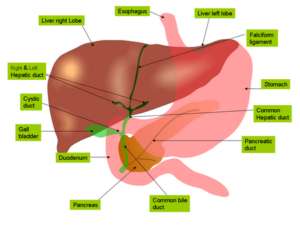 Liver transplantation is a life-saving treatment that is part of the standard healthcare practices to treat many end-stage liver diseases. It is the surgical process of removing the malfunctioning liver and replacing it with a healthy liver from a deceased or living donor.
Liver transplantation is a life-saving treatment that is part of the standard healthcare practices to treat many end-stage liver diseases. It is the surgical process of removing the malfunctioning liver and replacing it with a healthy liver from a deceased or living donor.
In case of regular liver infections and diseases, the liver can heal itself with a unique process of regeneration.
What is liver regeneration?
Liver regeneration is a complex process of liver homeostasis which activates when part of the liver is surgically removed or chemically damaged. Studies have proven that 25% of the original liver volume can regenerate itself.
Liver regeneration starts with cell proliferation, which begins with the replication of hepatocytes (the main cells of the liver). The proliferation then completes with the replication of endothelial and epithelial cells.
Conditions when liver transplantation becomes necessary
Human beings are gifted with this innate ability of the liver to regenerate. However, there are instances where the liver is damaged beyond its capacity to self-heal. When this happens, you need help through medical means which provide you the option of a liver transplant.
The disability of liver cells to function normally, the loss of liver cells and the scarring of liver is referred to as cirrhosis. When a significant part of liver is affected by cirrhosis, then there are no other viable options other than going for a liver transplant.
There are several medical conditions that can lead to dangerous levels of cirrhosis.
Hepatitis B
When hepatitis B becomes chronic and can’t be treated with conventional treatments, patients are recommended liver transplants.
Substance abuse of alcohol
Long term and excessive consumption of alcohol can lead to fatty liver disease, alcoholic hepatitis and cirrhosis. The disease jaundice is one of these can can be attributed to a defective liver. In addition, overdose of certain pain medications that contain acetaminophen can be damaging to the liver.
Autoimmune hepatitis
Unlike other classes of hepatitis which are caused by different viruses, autoimmune hepatitis is the condition in which a person’s immune system mistakes its own liver cells as harmful foreign invaders. Autoimmune hepatitis is chronic in nature and can lead to liver failure and cirrhosis.
Liver cancer
Liver cancer is mostly diagnosed in old people. In its advances stages, it can only be treated with a liver transplant.
Acute liver failure
Overdose of certain drugs can lead to sudden liver failure. Liver transplant is recommended in fast-acting acute liver failure.
Types of Liver Transplant
There are different types of liver transplants that are offered to a person fighting of dangerous liver diseases.
Orthotopic transplant
An orthotopic transplant is the most common type of liver transplant surgery in which the person undergoing surgery gets the replacement of the whole liver organ from a deceased donor. Orthotopic transplants are done with the help of people who pledge to donate their healthy organs prior to their death.
Living donor transplant
There has always been a big difference between the number of deceased donors and the people who await liver transplantation and it is nearly impossible to facilitate every patient with orthotopic transplant.
With technical advancements in surgical procedure, it has become now feasible to transplant a part of liver in the person which is donated by a willing liver donor.
The success of living donor transplant is based on the concept of liver regeneration. If body does not reject the transplant, then the transplanted part of the liver can regenerate itself to the original size within week or two and the donor’s removed portion of the liver also grows back to its actual size.
Since this type of transplant is complex in nature, there are certain criteria that need to be met.
-
- The donor must be in between 18-60 years of age, with good mental and physical health
- The donor must have a BMI of less than 35
- The donor and recipient must have a compatible blood type
- The donor must be free from significant organ diseases and transmissible diseases such as HIV/AIDS and hepatitis
- The donor must not be an active substance abuser
Prevention of liver diseases
It is an old cliché, but there is no doubt that prevention is better than cure. Therefore make sure that your liver remains healthy by keeping in mind the following guidelines.
-
- Keep your consumption of alcohol low or moderate
- Get regular vaccinations for hepatitis if you are more susceptible to the hepatitis virus
- Take medications cautiously – don’t mix medications with alcohol and non prescribed supplements
- Practice safe sex
- Obesity is the major reason behind non alcoholic fatty liver disease, so adopt healthy eating habits
Remember that a liver transplant is the last resort to treat a faulty liver and it is better that you make a conscious effort to maintain a healthy liver first. A standard lifestyle should be sufficient in maintaining a healthy liver. Doing things like heavy drinking or overdosing on OTC or prescription drugs are some of the causes that would cause your liver to acquire a disease.
Most importantly, nothing beats getting regular check ups with your doctor! You get your car maintained. Make sure you do it with your body as well!
